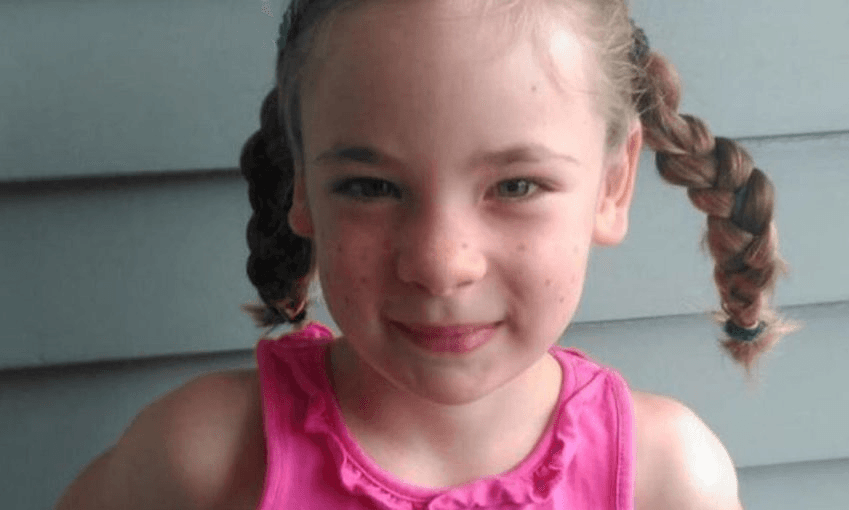Public health campaigns constantly encourage parents to have their children walk to school. Yet when the unthinkable happened, a coroner pointed the finger at the parents.
Dion and Fiona Neems have been through every parent’s worst nightmare. Their precious child Carla was killed by a rubbish truck outside her home.
A tragic accident like this one has ripples everywhere. Anyone who has lost a child in their community knows that. Communities rally around the whānau. People try to find the words when there are no words that can ever console grieving parents. Siblings mourn, their lives changed forever. Grandparents, aunties, uncles, best friends and cousins – everyone is left reeling.
When there is such a loss, so big and so unfathomable, questions are asked. Why? How did this happen?
Sometimes an accident is just that. An accident. But we want to know why, so that we might ensure it never happens again, that we might never lose so very much.
This is the role of the coroner. We expect a coroner to be an intelligent and qualified person who can assess an accident and see if lessons can be learned. A coroner is wholly independent, we expect them to order an inquest if necessary, to determine a cause of death. We expect them to investigate when needed. We expect them to maintain records. Set precedence.
We might also expect them to have empathy. Compassion.
Coroner Tim Scott in Gisborne District Court presided over the tragic death of six-year-old Carla Neems.
He pointed the finger at her parents. She should not have been doing what children all over New Zealand do. For her parents to let her walk to school with her older siblings was, he said, “unacceptable”.
He felt the need to publicly hold them accountable for their daughter’s death. He seems not to register that any parent who lost a child in those circumstances would likely blame themselves – even if they weren’t to blame. Even if they were doing what they thought was right.
His words have echoed throughout the world, with the story being picked up widely and used as the latest talking point on safety, independence, parenting and blame. He surely knew this would happen but decided in that moment, for whatever reason, to let blame and judgement drown out compassion, empathy and grace. He surely knew his remarks would ripple, like Carla’s death, through communities.
The response from Carla’s parents was heartbreaking and unsurprising. They are the words felt by so many parents. They told Stuff they would change anything that happened on May 2, 2017, if it meant Carla was still alive.
For now, they will have to contend with the judgement of Tim Scott and an often cruel public. But I hope they will also know that there are many who send them love today as they cope with this unwanted attention.
And also, that there might be meaningful change for them hidden in the awful headlines.
Scott’s report said there was another way of ensuring Carla’s safety. The Council truck that hit her should have been fitted with proximity alarms. Hopefully, this, the only really useful finding might be acted on.
Fiona and Dion Neem did what countless parents do every day. They weighed the risk and the reward for an activity for their child. They likely listened to the principals around the country who run to the media and complain about “Mums in SUVs” who don’t send their kids to school on their bikes.
They probably heard the incessant crap on talkback radio about independence and resilience in children. Maybe they heard from older generations who insisted that they walked for an hour to school along country roads and kids these days are soft. They might have heard about the studies that suggest children are happier and healthier if they’re given small pockets of age-appropriate independence. This will be part of why schools themselves encourage walking and other active modes constantly. Perhaps they walked to school themselves as kids. Or all the kids in their street marched happily each morning, shrieking with laughter.
Could it have been all of those things? Or just that they knew their child, knew her siblings, and decided that today she would walk in the sunshine.
To face what we truly know is impossible. We are fragile. All of us. We make decisions every day as parents that we hope are the right ones and we do so on a prayer, never knowing what could be coming. We lean on our whānau, our community, our village.
We make ripples with every choice. And we hope that, should the unthinkable happen, we will be surrounded by waves of love that will somehow get us through the impossible.
These days the judgement seems always to come first like a tsunami.
I hope we can make sure the empathy, the compassion, the kindness keeps coming too. And that community responses led with those values can take the place of Scott’s words.
Perhaps a walking school bus. Perhaps a scooter safety programme in schools. Perhaps a commitment by drivers to checking driveways and roads for children. Perhaps a response that will actually go some way to acknowledging the impact of losing Carla.
Turning her parents into targets will never ever do that. Pain on more pain will never heal this loss.
The reflection in those broken waters should look familiar. It is all of us who have ever started the day with a kiss on the cheek and “have a great day at school honey”.
To anyone who has ever watched their child rush away on the wind, believing a community is there with them too.



